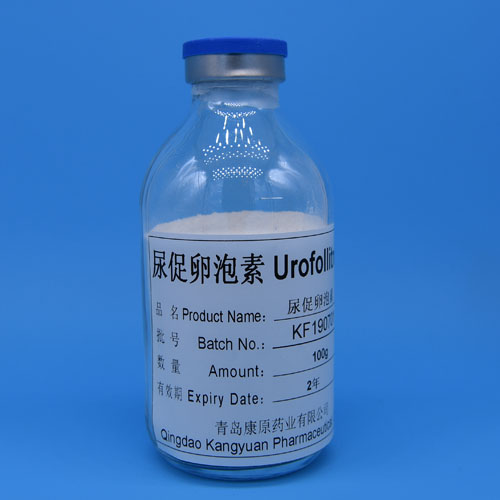Introduction to Urofollitropin: Follicle-stimulating hormone, also known as
follicle-stimulating hormone (Follicle-stimulating Hormone, FSH), is a
gonadotropin secreted by basophils in the anterior pituitary gland, and its
composition is a glycoprotein.
Secretion mode: It is secreted in pulses in the human body, and women
change with the menstrual cycle.
Function: The main function of FSH is to proliferate granulosa cells,
differentiate endometrial cells, form follicular fluid, and expand the
follicular cavity, so as to make follicles grow and develop, improve the
efficiency of mature follicles, and then increase ovulation rate and pregnancy
rate.

For women: the main function is to promote the maturation of follicles. It
can promote the proliferation and differentiation of follicular granulosa cells,
and promote the growth of the entire ovary.
For men: It acts on the seminiferous tubules of the testis to promote sperm
formation.
Currently, the indications for follicle-stimulating hormones approved in
China are:
(1) For anovulation (including polycystic ovary syndrome, PCOS) who are
ineffective after receiving clomiphene citrate treatment;
(2) Used in assisted reproductive technology (such as in vitro
fertilization-embryo transfer (IVF-ET), gamete intrafallopian transfer
(GIFT) and intracytoplasmic sperm injection (ICSI)) in order to achieve the
purpose of multiple follicular developments
Clinical significance: Determining Urofollitropin in serum is of great
significance for understanding pituitary endocrine function, indirectly
understanding the functional status of the hypothalamus and ovary, predicting
ovulation time, infertility, and diagnosis and treatment of endocrine
diseases.